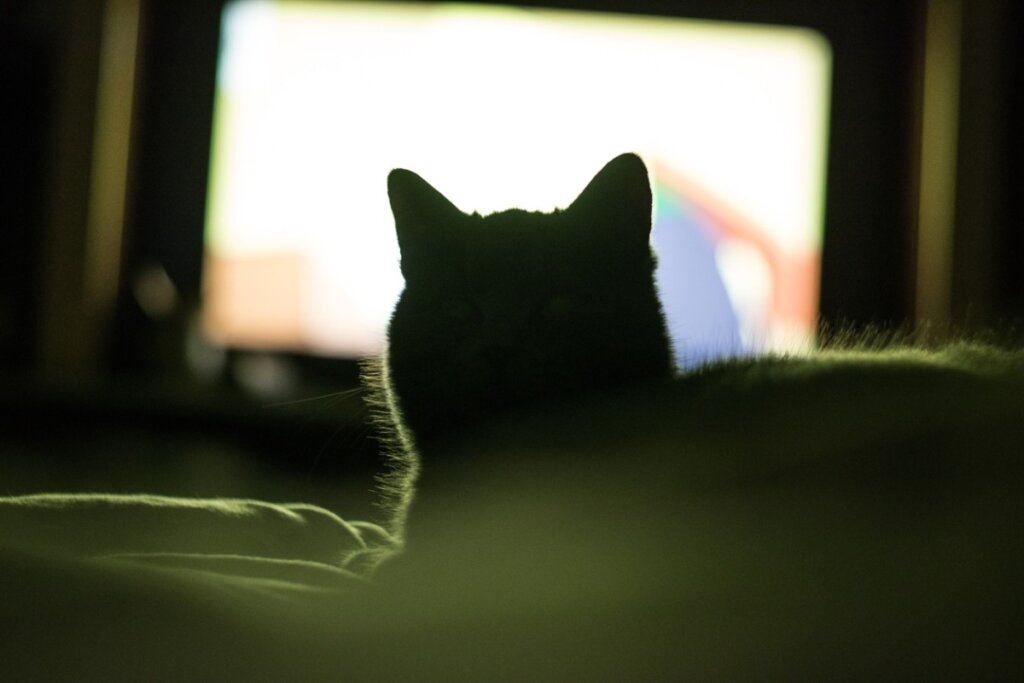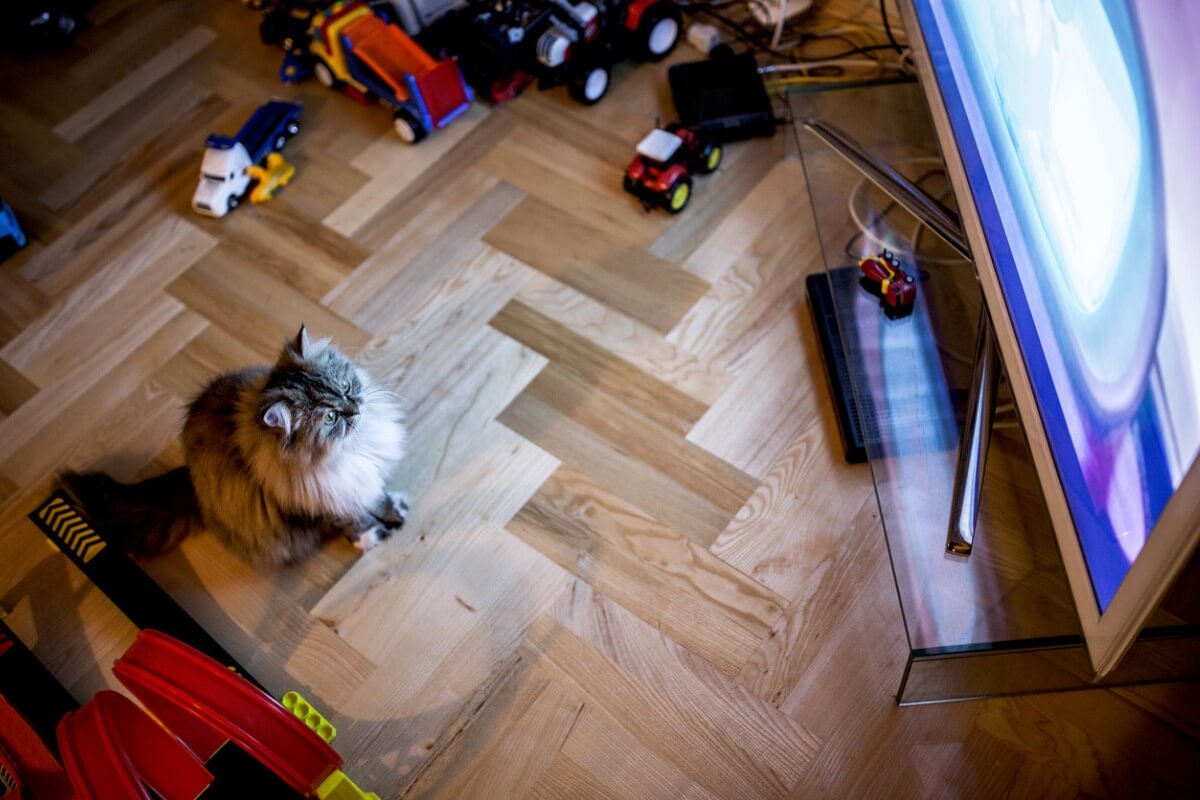Why Does My Cat Like to Watch TV?

Living with animals gives rise to some really curious situations, such as cats sitting on the couch to watch TV with their guardians. Is this behavior a result of embodiment bias or are they really attracted to this mode of entertainment?
As in many other situations, the answer to this question is somewhere in between. If you’re curious every time your feline lies down with you and watches the same screen as you, here’s why.
Why do some cats like television?
Television is a device that emits light and displays images in a variety of changing colors and a variety of sounds. So, it would make sense that your cat is attracted to the screen just for that reason, right?
However, we can’t explain this behavior simply because of the lights and colors, because you can clearly see that the cat pays attention to what they see on the screen. Cats stare at what’s on the screen, follow movements with their head, and even try to hunt what appears in the images.
From these behavioral records, we can’t say that it’s just our imagination that cats like to watch TV. However, do they watch the same things we do? Are they interested in what we’re watching in the same way as us? In the following section, we’ll bring you the answer.

What do cats watch when they watch TV?
Although a feline may be attracted to television, their perception of reality isn’t the same as a human’s. There are 4 fundamental differences between them and us when it comes to this activity:
- Vision: Cats, even though they have the ability to see in color, only have receptors for green and blue, so they don’t perceive the warm colors on the screen. On the other hand, they are able to see in low light conditions, so the brightness of the screen makes it difficult for them to perceive the contours.
- Motion perception: This ability depends on the number of images per second (or frames per second) that the eye is able to capture. Modern televisions can show 60 fps, which seems like movement to us because we capture about 25 images per second. A cat can capture about 70 fps, so the images on the screen will be much more static for them.
- Attention: This basic cognitive process also works differently between felines and humans. While we can fix our attention on the screen for more than an hour, cats pay attention for about 6% of the time that they’re watching TV.
- Hearing: A cat’s hearing is much more acute than that of humans. Therefore, it isn’t always the pictures, but the sounds that catch their attention on TV.
As you can see, cat owners are correct when they state that their cat likes television, but there’s still an element of personification in this statement. What to you is a program that tells a moving story, to your feline is static images and sounds that intermittently grab their attention.
Is it good for cats to watch TV?
When it comes to whether or not it’s good to let cats watch TV, you can find conflicting opinions. Some people keep the TV on when they leave their felines alone because it serves as environmental enrichment. However, other owners fear that their cat may attack the TV and hurt themselves!
What is certain is that, just like any form of entertainment that isn’t designed for them, it’s important to supervise cats. Often felines show interest in the screen when they recognize some prey or another object of interest. If the cat decides to jump to catch what they see on TV, they may suffer an accident or end up breaking it.
What programs attract cats more?
Do cats prefer some programs over others? It seems they do. Even though they aren’t interested in the program for the same reason that you, each type of program has specific audiovisual characteristics that cats may like to different degrees. These seem to be cats’ favorite programs:
- Sports programs: The dynamism of this type of program captures a cat’s attention, as it’s usually easier for them to perceive the movement. The most successful programs in this category are car shows with the movement of the cars and motorbikes speeding by.
- Action movies: Like sports programs, these feature films contain fast movements. They also feature an intense, dynamic sound that will easily grab the cat’s attention.
- Children’s programs: Cartoons and other programs for infants often try to stimulate children through bright colors, loud sounds, and fast movements, which is also interesting for a feline.
- Animal documentaries: Animal programs are stimulating for felines because they contain familiar, eye-catching sights and sounds. As you’d expect, those with sounds and images of birds will really grab their attention.

However, when it comes down to it, the main reason your cat comes to the couch when you watch TV is not so much to watch it as to be with you. So, it’s up to you to make sure that you both enjoy each other’s company, because that is what matters most in those special times.
All cited sources were thoroughly reviewed by our team to ensure their quality, reliability, currency, and validity. The bibliography of this article was considered reliable and of academic or scientific accuracy.
- Ellis, S. L., & Wells, D. L. (2008). The influence of visual stimulation on the behaviour of cats housed in a rescue shelter. Applied Animal Behaviour Science, 113(1-3), 166-174.
- Brown, J. L., Shively, F. D., LaMotte, R. H., & Sechzer, J. A. (1973). Color discrimination in the cat. Journal of comparative and physiological psychology, 84(3), 534.
- Sokolov, E. N., Satinskas, R., Stabinyte, D., Pleskacauskas, A., Vaitkevicius, H., Stanikunas, R., & Shvegzda, A. (2007). Encoding of stimulus movement parameters in the cat visual system. Neuroscience and behavioral physiology, 37(4), 395-402.